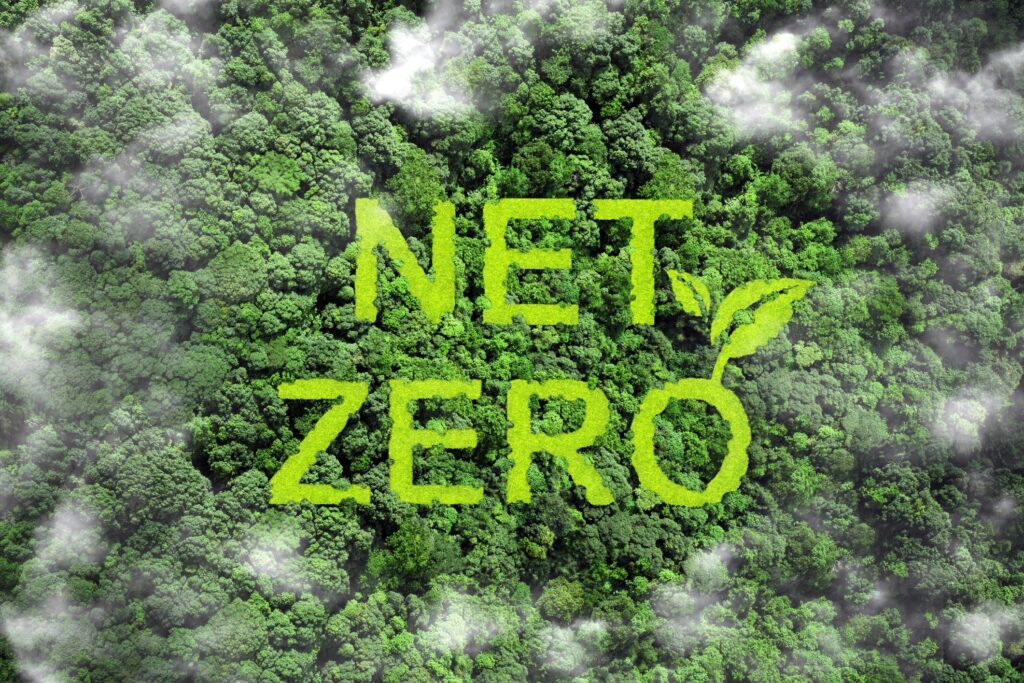California makes a name for itself in many diverse ways, but one way in particular is its actions in furthering environmental sustainability. Recognizing the urgency to make a change, the state’s legislators have taken action, introducing new bills that demand increased transparency and accountability from businesses operating within California’s borders.
The recently proposed Corporate Climate Data Accountability Act and the Climate-Related Financial Risk Act are likely to have impacts that extend beyond California, even bringing a potential shift in how corporate America approaches climate action.
The Climate Accountability Package
California’s recent environmental legislative efforts are centered around the Climate Accountability Package—a set of bills designed to increase transparency, standardize corporate environmental disclosures, and help businesses take more effective steps toward mitigating climate change. Introduced in January 2023, this package is proof of California’s commitment to aligning public investments with big-picture climate goals, as wildfires, flooding, and other climate disasters have become increasingly common. California lawmakers are now trying to lay the groundwork for long-term sustainable practices.
The Climate Accountability Package has two bills: SB 253, the Corporate Climate Data Accountability Act (CCDAA), and SB 261, the Climate-Related Financial Risk Act. These two bills have similarities to other regulations proposed at the federal level. However, the aim for California is that these bills will have a deeper impact and also broadly influence business practices outside California. Considering how many businesses nationwide operate within the state, the accountability package could have significant impacts. Interestingly, it has also earned attention from high-profile companies like Microsoft, Apple, IKEA, and Patagonia.
Breaking Down the First Bill in the Climate Package: CCDAA
SB 253, or the CCDAA, was passed by California legislators on Sept. 12, 2023, and is next expected to be signed by the governor and made into law.
Applicable to a range of U.S. companies, the CCDAA casts a wide net, from small LLCs to corporate giants, potentially influencing the practices of thousands of businesses. The reporting framework recognizes the need for transparent and accurate disclosures, requiring the hiring of independent auditors to validate and verify reported emissions.
The CCDAA mandates the complete disclosure of greenhouse gas emissions from both public and private US organizations operating within California. Importantly, this concerns companies’ direct emissions as well as their indirect emissions, those released from activities of the supply chain not owned by the company itself. This includes the often-overlooked yet major category of greenhouse gas contributions, Scope 3 emissions, which can easily make up 70% of a company’s total carbon footprint.
Implementation of the CCDAA will take a phased approach. By 2026, businesses will need to begin disclosing their direct emissions. Indirect emission disclosure requirements will follow, as Scope 3 emissions are often a larger undertaking to track and monitor, with many possible sources within the typical supply chain. Eventually, the CCDAA will help stakeholders, from investors to consumers, understand the environmental progress of the companies they support.
The Second Bill in the Climate Package: Climate-Related Financial Risk Act
SB 261 addresses the financial risk of climate change for companies in California, mandating annual disclosures of risks such as supply chain disruptions, workforce challenges, and infrastructure vulnerabilities. The disclosure format uses the guidelines set by the Task Force on Climate-Related Financial Disclosures, which was created by the Financial Stability Board, an international organization. Provided the California governor signs this bill, the first deadline for risk disclosures would be as early as December 31, 2024.
Naturally, the Climate-Related Financial Risk Act will help keep investors informed on the business risks of climate disruptions, but it will also help businesses navigate their transition toward a reduced carbon footprint.
The Climate Accountability Package’s Potential Impacts
The Climate Accountability Package could completely shift the way companies approach climate disclosures. These bills will hold companies accountable and level the playing field, giving businesses that truly support environmental sustainability the chance to distinguish themselves from those that rely on greenwashing, only claiming to support eco-friendly practices. One study found that 81% of California companies reporting to the CDP claimed their business experienced inherent benefits as a result of climate-related regulations, making these types of rules beneficial on multiple fronts.
Building CCDAA Compliant Operations
Historically, sustainability has never been the focus of corporate reporting. Many businesses, mainly those unfamiliar with carbon emissions reporting, may soon find themselves in uncharted waters where a paradigm shift is needed. Companies must recognize the need to mitigate their environmental impacts and take steps to decarbonize their supply chains.
In achieving this goal, businesses may encounter obstacles, particularly within the Scope 3 emission category, also called value chain emissions. Several factors contribute to their complexity:
- Diverse Sources – Scope 3 includes emissions from a wide variety of activities, from the production of goods used in operations to transportation to the end-use of sold products.
- Data Collection Challenges – These emissions are usually beyond the company’s direct operational control, so gathering accurate data demands collaboration with many parties.
- Scale of Emissions – Scope 3 often makes up the majority of a company’s carbon footprint. This volume can make monitoring and managing Scope 3 emissions an investment in time and resources.
These challenges aside, companies can set themselves on the right path to CCDAA compliance as well as carbon emissions reporting that supports their decarbonization efforts, by:
- Embracing Carbon Literacy – Get started by establishing an understanding of the basics of carbon emissions accounting, sources, and impacts.
- Establishing a Cross-Functional Team – Involve people from various departments such as finance, operations, procurement, and sustainability to ensure holistic data collection and reporting.
- Investing in Technology – Consider tools and platforms that streamline emissions data collection, analysis, and reporting.
- Engaging Suppliers and Partners – Since much of the Scope 3 data will come from outside the organization, nurturing solid and transparent relationships with supply chain partners is vital.
- Seeking External Expertise – Engage with sustainability consultants offering expertise and resources for meeting different regulatory requirements.
- Ensuring Continuous Monitoring – Regularly review emission data and adjust strategies accordingly to remain compliant and continue to decarbonize.
With Regulations on the Rise, Greenabl Ensures Maximum Accountability
Whether it’s the Corporate Climate Data Accountability Act or another regulation, staying compliant with carbon emissions reporting requirements and other standards is becoming increasingly important for avoiding non-compliance penalties and realizing the benefits of sustainability as a company value.
What’s vital in this journey is ensuring that companies have the resources to be accountable to themselves, their stakeholders, and regulation requirements. This is where Greenabl comes in as a leader in helping businesses decarbonize their supply chains, with the following three areas of focus.
1. Streamlined Data Collection
One of the primary challenges businesses face is the efficient collection of emissions data. A thorough understanding of the current carbon footprint must be at the center of any sustainability initiative. Greenabl’s platform offers real-time, accurate, and actionable insights. With the ability to integrate through APIs, companies can conveniently get emissions-tracking data, making sure they have a comprehensive view of their current emissions and the decarbonization opportunities ahead of them.
2. Accurate Reporting
Beyond simple data collection, companies must be sure their reporting is accurate and reliable. Greenabl utilizes the trusted GLEC (Global Logistics Emissions Council) framework that aligns with ISO 14083 standards. Businesses can be confident that their emissions data is always accurate and meets regulatory expectations. Greenabl’s platform also ensures that emission reduction strategies are based on a true reflection of the company’s current emissions, based on reliable data.
3. Guidance and Consultation
The journey to compliance can be filled with challenges and unforeseen obstacles. Greenabl recognizes this and goes beyond offering just a tool. Providing expert consultation, Greenabl helps businesses become well-equipped to meet and exceed requirements. They get the advantage of having an expert guide by their side, helping them make informed decisions. Then, through partnerships like with Cloverly for certified carbon credits, Greenabl offers ways for companies to further their sustainability efforts.
Navigate Supply Chain Decarbonization with Greenabl
When businesses need expert support to ensure they’re on the right path, Greenabl is there with the tools, insights, and expert guidance they need to face the demands of carbon emissions regulations. By prioritizing transparency and accountability, Greenabl ensures that companies are not only compliant but can also lead the way in the fight against climate change.
To start your journey toward sustainability, schedule a call with Greenabl today.


